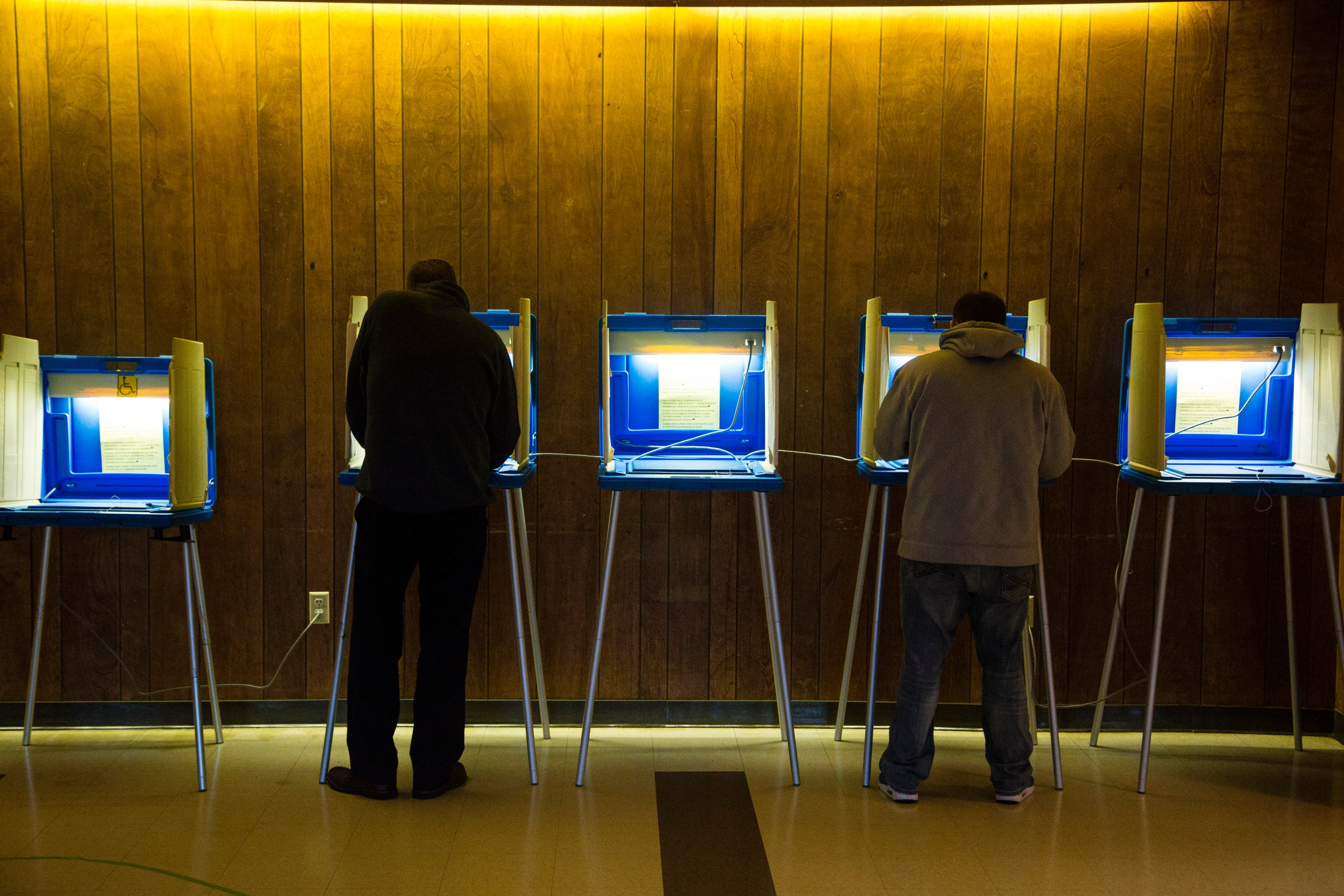
The U.S. Supreme Court will rule in a landmark partisan gerrymandering case, in which I am the named plaintiff. At a trial in front of three federal judges, two of whom were appointed by Republican presidents, the evidence clearly established that Wisconsin has one of the most partisan — perhaps the most partisan — legislative gerrymanders in the nation. As the trial court found, this gerrymander effectively guarantees Republican control of both houses of the Wisconsin legislature for a decade, no matter what happens in Wisconsin elections. It also guarantees that Republicans will control the legislature that drafts the next apportionment after the 2020 census, perpetuating the problem into the next decade and beyond. The trial court found that this “entrenchment” of Republican control was unconstitutional, that it deprived millions of Wisconsin citizens of their rights. Similar processes deprive voters, some Republican and some Democrat, elsewhere in the United States.
This extent of partisan bias in Wisconsin’s legislative apportionment became clear in the first election after the current legislative districts were adopted: In November 2012, Democrats won two major statewide elections and a clear majority of the Wisconsin statewide vote for state Assembly candidates, yet won only 39 of the 99 Assembly seats. Not only is there bias, but there are also few competitive Assembly seats. In 2014, Republicans won a clear majority of the statewide Assembly vote, yet gained only three more Assembly seats. The only legislative elections of consequence in Wisconsin are partisan primaries — general elections rarely matter.
The consequences of this unfair districting are many. Because Wisconsin had been politically competitive between the parties for decades, it has often been recognized for its bipartisan consensus on public policies. Now it has become much more ideologically driven, and efforts to obtain bipartisan consensus on legislation are almost non-existent. A state that once prided itself for strong public schools and a world-class public university system now sees devastating cuts to education and ideological fights about education policy. There is also substantial underinvestment in vital infrastructure like highways; Wisconsin is now rated as having a rural highway system as bad as any state in the country. Out-of-state special interests are buying changes in regulations that allow industrial users to operate high capacity water wells and to mine frac sand in ways that damage our rich heritage of wetlands, trout streams and clear blue lakes. And this is just a partial list of the unfortunate product of the legislatures elected under this biased legislative apportionment.
Another clear consequence of the unfair districting has been to discourage Wisconsin Democrats from participating in the many activities of democracy. Now 77 and retired, I was raised in Wisconsin and have lived virtually all my life here. I have been a loyal Democrat since I was a boy working with my mother on a campaign to recall Senator Joseph McCarthy in the 1950s. I have stuffed envelopes, knocked on doors, donated to and raised money for candidates. I have worked on campaigns in many districts throughout the state because my goal has always been to elect Democratic majorities in the two branches of the state legislature. Sometimes we won, sometimes we lost. This is to be expected in a politically competitive state. What is not acceptable is what Wisconsin Democrats now face: Since the 2012 election, we have had no chance to elect Democratic majorities in the Legislature, even when we win big electoral majorities.
Partisan gerrymandering is not just done by Republicans. In some other states, where Democrats are in political control, gerrymanders disadvantaging Republicans have been adopted. And in those states, Republicans have no chance to achieve their policy goals through the persuasion of voters. This is not how democracy is supposed to work.
In democracies, electoral majorities should govern (subject to very important and constitutionally protected minority rights). But we plaintiffs — there are twelve of us, from various parts of Wisconsin, all Democratic activists like me — just like those Republicans in some other states, no longer have a chance to change the political direction of our state. We may be able to persuade a majority of our citizens to our points of view, but nothing will change. The legislature itself is committed to preserving its advantage and cannot be expected to undo their gerrymanders. And unlike a few states, Wisconsin does not have voter initiative, a process that has allowed citizens in California and Arizona to enact non-partisan districting commissions and remove from legislatures the ability to gerrymander.
As a country, we need the Supreme Court to restore fairness in elections by setting some limits on the degree of partisan bias in legislative districting. In “purple” states, both parties compete for statewide offices. Both parties should also have a chance to elect state legislative majorities. Anything else is not democracy. Yet there is no remedy for excessive gerrymandering other than Supreme Court action.
Voters should choose their legislators. Instead, in Wisconsin and in many other states, legislators have chosen their voters.
More Must-Reads From TIME
- The 100 Most Influential People of 2024
- Coco Gauff Is Playing for Herself Now
- Scenes From Pro-Palestinian Encampments Across U.S. Universities
- 6 Compliments That Land Every Time
- If You're Dating Right Now , You're Brave: Column
- The AI That Could Heal a Divided Internet
- Fallout Is a Brilliant Model for the Future of Video Game Adaptations
- Want Weekly Recs on What to Watch, Read, and More? Sign Up for Worth Your Time
Contact us at letters@time.com